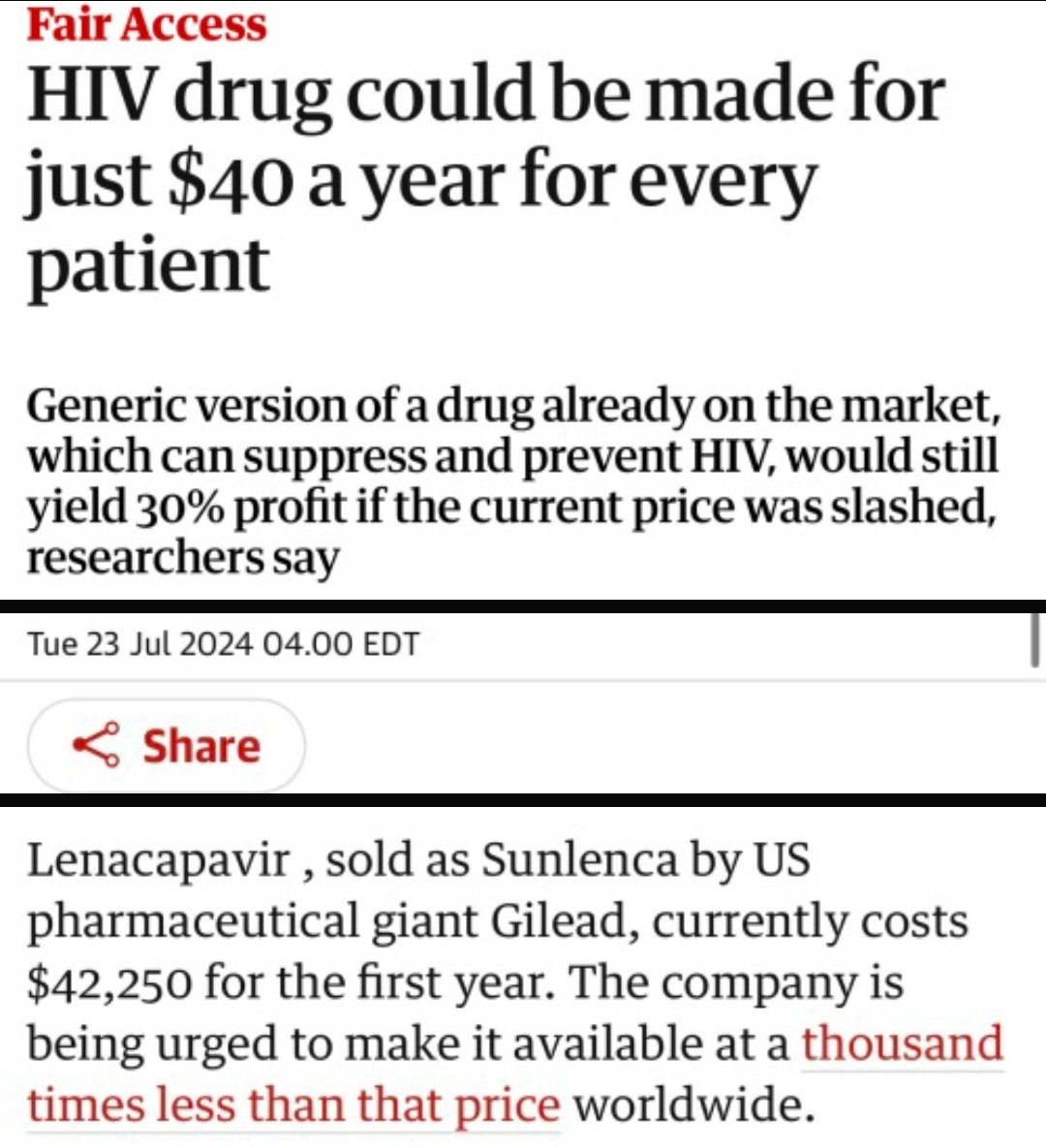this post was submitted on 17 Sep 2024
413 points (98.6% liked)
A Boring Dystopia
9756 readers
1116 users here now
Pictures, Videos, Articles showing just how boring it is to live in a dystopic society, or with signs of a dystopic society.
Rules (Subject to Change)
--Be a Decent Human Being
--Posting news articles: include the source name and exact title from article in your post title
--Posts must have something to do with the topic
--Zero tolerance for Racism/Sexism/Ableism/etc.
--No NSFW content
--Abide by the rules of lemmy.world
founded 1 year ago
MODERATORS
you are viewing a single comment's thread
view the rest of the comments
view the rest of the comments

But if they have more customers then they have to spend more resources making more product. So 1 customer at 1000x the price is more valuable than 1000 customers at the a lower price. If it costs 28 dollars to make a year's worth of doses like this screenshot claims, then they'd make $42,222 charging a single customer the current price, while they'd only make $12,000 charging 1,000 customers the proposed price.
So for the company to make more money than they are now, they'd need 3,519 new customers for every one current customer. Since Google says there are 1.2 million people with HIV in the United States, if they have more than 342 current customers in the united states, they are making more now than they could ever make at the proposed price. Therefore the amount of new customers is almost certainly not worth it to them.
Money seems to ruin pretty much everything about healthcare.
Just to expand your math in a different direction, going from 342 customers to 684 adds $9576 in costs, but cuts the price by 1/2 (plus $28). $21,139.
Going from 684 customers to 1368 adds another $19152. They break even at a $10,598 price point.
From 1368 to 2736 customers adds another $38304 in costs, but reduces the break even price point to $5327.
From 2736 to 5472 customers, another $76608 in costs, and a break even price point of $2685.
They are recouping all their additional costs, and making exactly the same profit charging 5472 people $7/day instead of 342 customers $115/day.
How many of those 1.2 million HIV patients can afford $7/day? If just 1% of them are willing to pay $7 a day, they will more than double their profits.